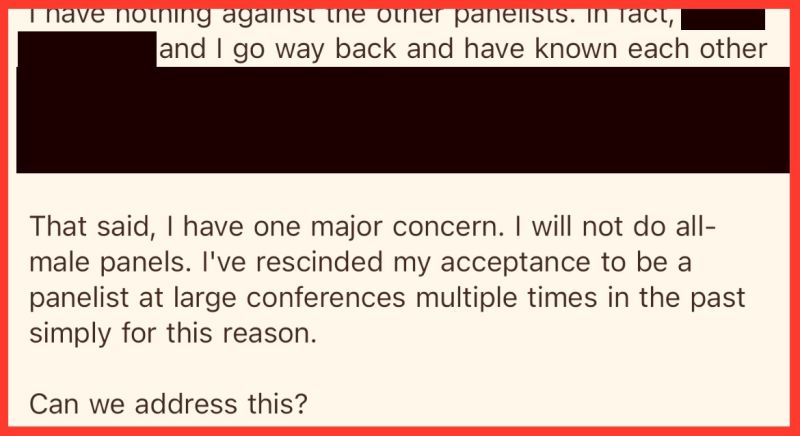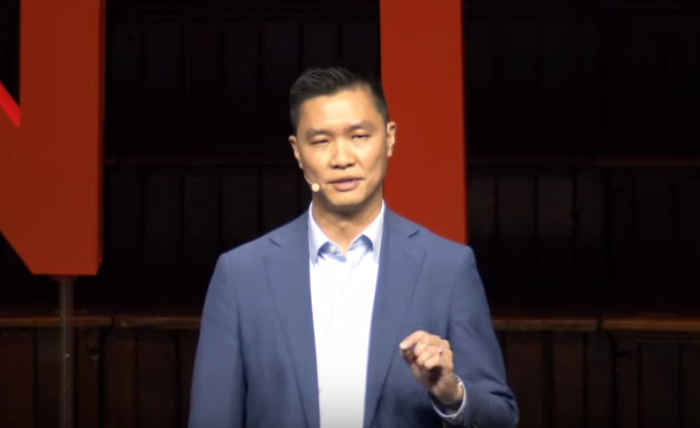We’ve all seen it – and then probably heard the reaction whispered cross the audience – and probably hashtagged on social media.
“Sausagefest.”
Another all-bloke panel.
Ian Yip, founder and CEO of cybersecurity startup Avertro has seen them too, and most importantly he’s conscious of being complicit in it.
Yip took to LinkedIn ahead of International Women’s Day to share his response to being invited to be part of an all-make panel.
His response is blunt and to the point.
“I have nothing against the other panelists… I have one major concern. I will not do all-male panels. I’ve rescinded my acceptance to be a panelist at large conference multiple times in the past simply for this reason,” he replied.
“How can we address this?”

Ian Yip’s reply to a request to be on an all-male panel
In his LinkedIn post, Yip goes on to say: “things are better than they used to be, but if this is still happening, we obviously have a ways to go”.
He also wonders about the best way forward when it comes to addressing the issue when confronted by it.
“Should we reject the invite outright? Should we give them a chance to correct it? Do we still show up but call it out as part of being on the panel?” he asks.
“However you handle it, I think we can all agree that we shouldn’t accept it and must do our part to make change happen.”
One of his colleagues, Biliana Rajevic, cofounder of Quantum Women, sought to unpack some of the issues, saying that one problem can be panel organisers simply don’t always know who’s around and so turn to people they know, or have easy access to.
“This can be addressed by informing them of good candidates and telling them why they are suitable and what perspective they could bring to the discussion,” she wrote.
“And if women candidates are not ”senior” enough, then invite those early-mid career. And make warm intros.”
But Rajevic also saw a gender issue that could be harder to address.
“Unfortunately, women (at all levels) are more reluctant to be on panels than men. This is something both myself and others I know have observed when either arranging panels or advising those who are organising. Reasons vary, but confidence, stage fright, not thinking they have anything of importance to say, are some factors that come into play,” she wrote.
“Proper prep-sessions or dry-runs (I’ve been surprised how little priority people place on this, thinking that in order to make the discussion sound ‘natural’ you shouldn’t rehearse), and encouragement could be a good start to address this.”
Speaking to Startup Daily about his post, Yip said diversity and inclusion conversations often begin with gender, but should not end there.
“We must remember to also consider race, religion, sexual orientation, socioeconomic background, and more,” he said.
“Posts like this always spark debate. You will often find people opposed to the points being made. Debate is useful, but it also speaks to how much more work there is to do. One of the themes for International Women’s Day this year is ‘equity’.
“Many people do not understand the difference between equality and equity, which is critical to making real change. More concerning however, is that there are people who continue to deny there is a problem. This may never change; the key is to reduce that number by being an ally in spite of ill-informed opposition.”
If you’re keen to contribute to the discussion, you’ll find Ian Yip’s post here. More on Avertro here.




















Trending
Daily startup news and insights, delivered to your inbox.